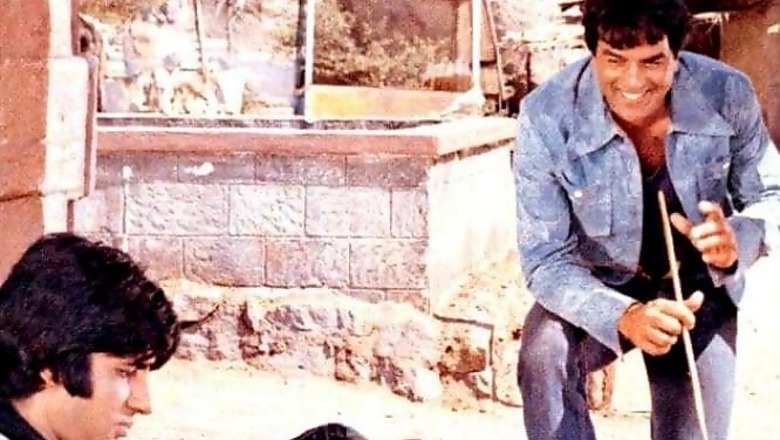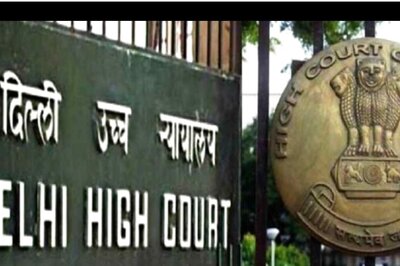Why has Amitabh Bachchan-Dharmendra's 'Sholay' not been remade in any of the southern languages yet?

views
New Delhi: It was on 15 August, 1975 that the very tenets of Indian cinema were redefined when Ramesh Sippy’s highly ambitious action-drama ‘Sholay’ arrived in theatres amidst high expectations. Even though the film initially received a lukewarm response from critics and audiences alike, density clearly had other plans. In the days that followed ‘Sholay’ became a box office sensation while its characters attained an iconic status courtesy their gripping dialogues.
Interestingly, despite its immense popularity, ‘Sholay’ has not been remade in any of the southern languages yet. The perplexing nature of this situation is magnified further by the fact that quite a few popular and successful Hindi films, which were released in the 1970’s, have been remade down south.
Best remembered for the crackling chemistry between Sanjeev Kumar and Mumtaz, ‘Khilona’ revolved around the live of a young man who loses his mental stability after witnessing the death of his lover. Released in 1970, it was remade in Tamil a short while later. Titled ‘Engirundho Vandhaal’, the Tamil version featured Sivaji Ganesan in the lead.
Directed by Chandra Barot, ‘Don’ created quite a stir amongst movie buffs because of Amitabh Bachchan’s stellar performance as well as its intriguing storyline. Released in 1978, the film proved to be a runaway hit at the box office and bagged several Filmfare awards. A few years later it was remade in Tamil as ‘Billa’ with Rajinikanth stepping into Big B’s shoes.
Revolving around the heartwarming friendship between a jovial orphan and an elephant, ‘Haathi Mere Saathi’ featured none other than Indian cinema’s ‘first superstar’ Rajesh Khanna in the lead. As expected, it managed to floor critics and audiences alike, helping ‘Kaka’ consolidate his standing even further. It was later on remade in Tamil with MGR essaying the lead role. Interestingly, the Tamil remake was titled ‘Nalla Neeram’.
Touted as a fun-filled comedy, ‘Gol Maal’ served as strong proof of Amol Palekar’s stellar comic timing. Boasting of some hummable RD Burman-composed numbers, it bagged quite a few Filmfare nominations. Released in 1979, it has been remade in Tamil (‘Thillu Mullu’), Kannada(‘Aasegobba Meesegobba’) and Malayalam (‘Simavalan Menon’).
Boasting of a brave storyline which revolved around a deaf and mute couple, the Gulzar-directed film ‘Koshish’ featured some captivating performances from Sanjeev Kumar and Jaya Bhaduri. A classic in every sense of the word, it was remade in Tamil as ‘Uyarndhavargal’. Directed by TN Balu, the remake saw Kamal Haasan and Sujhata essaying the lead roles.
Southern cinema’s inability to remake ‘Sholay’ can by and large be attributed to the overtly north Indian flavours which were an inseparable part of its setting/characters. Perhaps the best example of this north Indian influence is the use of ‘khari boli’ in the scenes featuring Amjad Khan’s character Gabbar Singh. Moreover, Thakur’s arrogance too has its root in the cast system which was prevalent in the Hindi speaking belts.
Another possible reason that ‘Sholay’ was its release date, it hit the screens just a few days after the Emergency was imposed. As such, the physical and psychological trauma experienced by Sanjeev Kumar’s character came across as a reflection of the hard times that the people of India were going through at that time. However, the impact of the Emergency was more severe in the North than in the South. Hence, the filmmakers down south may never really have seen it as a viable or relatable project.
Lastly, the magic of ‘Sholay was in its dialogues. As a result, language became an inseparable part of the brand just like the basic storyline or characters. As southern cinema has always had some highly talented artists it could have recreated the characters of the original with ease. However, the effectiveness of the dialogues would have been lost in translation, diluting the overall impact. Hence, ‘Sholay’ is perhaps one of the few gems Hindi cinema which can never truly be remade.


















Comments
0 comment